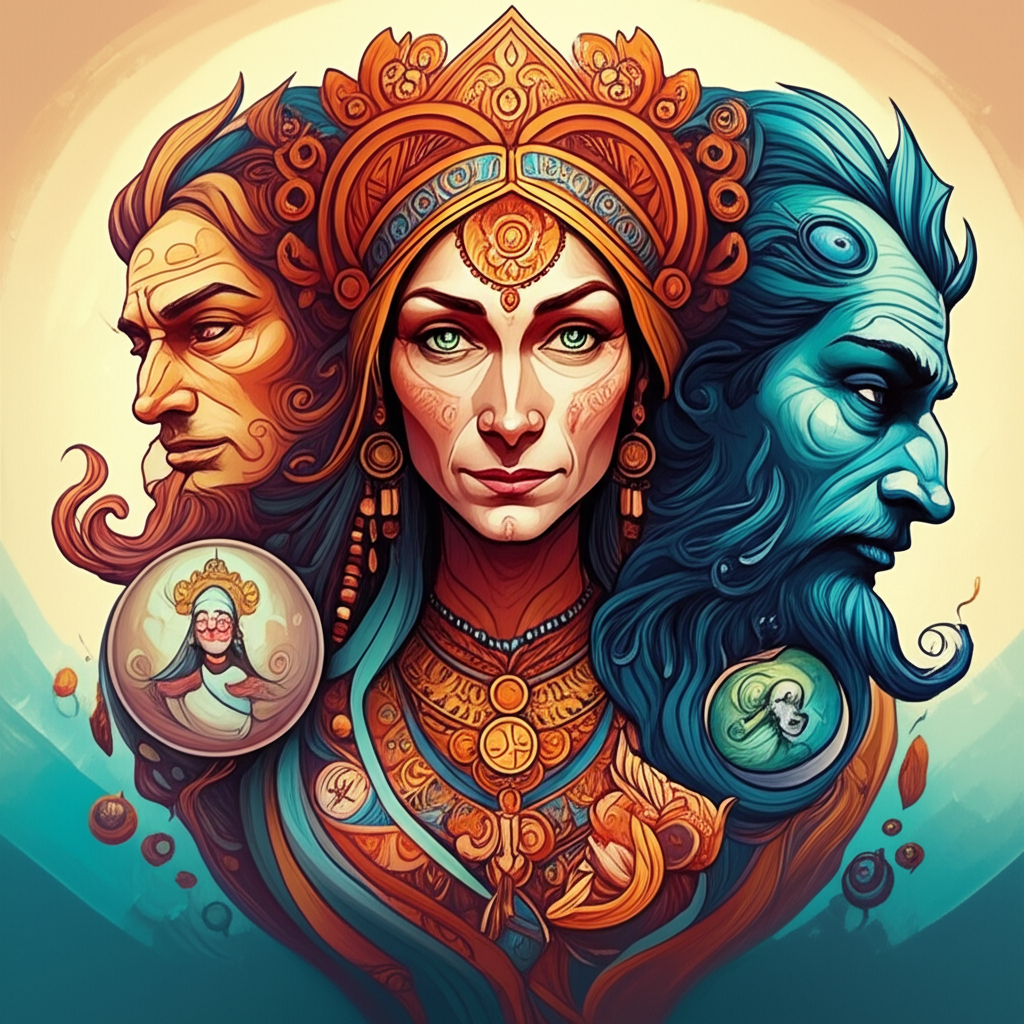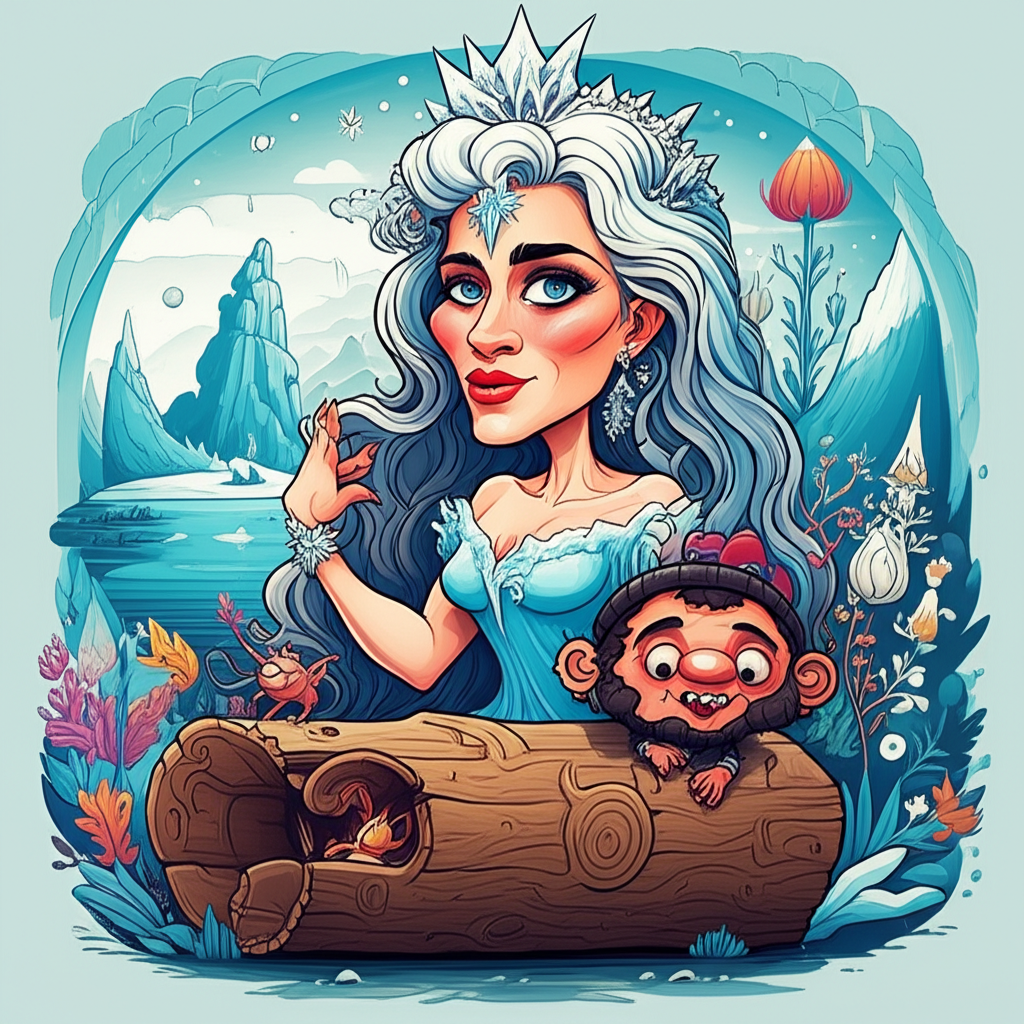
The vast, sweeping plains and dense, emerald forests of Eastern Europe have long been fertile ground for stories. Among the most enduring are those that speak of the spirits and forces that ancient peoples believed governed their world. From the heart of the Dnieper River valley, within the realm of Kievan Rus’, emerged tales of beings intertwined with the very fabric of nature, entities that reflected the profound connection and deep respect, bordering on awe, that these early Slavs held for their environment. These are not accounts of verifiable events, but rather echoes of a worldview, a tapestry woven from imagination and the lived experience of a people deeply attuned to the rhythms of the earth and its waters.
The era of Kievan Rus’, flourishing roughly from the 9th to the 13th centuries, was a time when the natural world loomed large in the human consciousness. Life was intrinsically linked to the seasons, the fertility of the land, and the bounty of its rivers and lakes. The world, for the people of this period, was animated. It was believed that spirits resided in every tree, every stone, and, most potently, in the flowing waters. These were not abstract forces but tangible presences, capable of both benevolence and wrath, demanding a delicate balance of appeasement and understanding. Their cosmology was one of interconnectedness, where the human realm and the spirit world were not entirely separate, but permeable, influencing each other in a constant dance of existence. It was within this vibrant, animistic understanding that figures like Mokosh, the earth mother, and the Vodyanoy, the lord of the waters, took shape in the collective imagination.
Among these ancient beings, the Vodyanoy stands as a potent embodiment of the untamed power of water. He is not a singular, visually defined figure in every telling, but rather a concept, a spirit of the deep. Often depicted as an ancient man, gnarled and covered in moss and algae, with a long, flowing beard the color of river weeds, he possesses eyes that gleam like dark pebbles. His skin is perpetually wet, his breath carrying the chill of the riverbed. He is the master of lakes, ponds, and the mighty rivers that were the lifelines of Kievan Rus’. His domain is the murky depths, the swirling currents, and the unseen currents that could pull a traveler to their doom. The Vodyanoy is often associated with the sounds of the water – the gurgling of streams, the roar of waterfalls, the ominous creak of ice. These sounds were interpreted as his voice, his moods, his pronouncements. He is the keeper of submerged treasures, the guardian of drowned souls, and the arbiter of the river’s unpredictable nature. His symbolic attributes speak of the dualistic nature of water itself: life-giving and nurturing, yet also dangerous and destructive, capable of drowning and sweeping away all in its path.
The tale of the Vodyanoy’s relationship with Mokosh, the supreme goddess of earth, fertility, and destiny, offers a glimpse into the complex spiritual landscape of Kievan Rus’. While Mokosh was revered for her connection to the soil, the harvest, and the well-being of the land, the Vodyanoy held sway over the liquid element, a crucial component of life and livelihood. Their stories, often whispered around hearth fires on long winter nights, were not epic battles but subtle interactions, reflections of natural cycles.
Imagine, if you will, a time when the Dnieper flowed, a majestic artery of life through the heart of the land. The people, farmers and fishermen, looked to Mokosh for the earth’s bounty, for strong crops and healthy livestock. They would offer prayers and leave small gifts at her sacred groves, seeking her blessing. Yet, their survival also depended on the waters. When the rains failed, or when the rivers swelled with treacherous floods, it was understood that these were not random occurrences. It was said that the Vodyanoy, in his watery realm, was reacting, perhaps displeased, perhaps simply exercising his dominion.
One such tale speaks of a particularly harsh drought that parched the lands of Kievan Rus’. The earth, under Mokosh’s gentle hand, began to crack. Rivers dwindled to trickles, and the people grew desperate. In their fear, they turned their pleas not only to Mokosh but also to the Vodyanoy, understanding that both earth and water were essential. They sent their bravest young men, those skilled in navigating the treacherous currents, to the deepest parts of the river. These emissaries, armed with offerings of woven reeds and smooth, river-polished stones, would stand at the water’s edge and call out, invoking the Vodyanoy.
They would speak of their plight, of the dying crops and the thirsty animals, and implore him to release more of his watery essence to nourish the parched earth. The Vodyanoy, in his subterranean dwelling, would hear them. His response was not always immediate, nor was it a simple granting of wishes. Sometimes, he would send a subtle increase in the river’s flow, a promise of sustenance. Other times, the water might remain stubbornly low, a reminder of his power and the precarious balance.
There were also stories of the Vodyanoy luring away those who disrespected his domain. Fishermen who cast their nets too greedily, or those who polluted his waters with refuse, might find themselves pulled into the depths, never to be seen again. These were not acts of malice, but rather the natural consequences of disturbing the order of his watery kingdom. The Vodyanoy was a force of nature, and his actions, though frightening, were seen as an intrinsic part of the world’s design. The whispers of the Vodyanoy’s presence were also tied to the wisdom of the elders, those who understood the river’s moods and the signs of the weather. They knew when to fish, when to travel, and when to respect the water’s power.
The symbolism embedded in these narratives is rich and multifaceted. The Vodyanoy, as the lord of water, represents the wild, untamed forces of nature. He embodies the duality of water: its capacity for immense life-giving power and its terrifying destructive potential. His connection, or sometimes perceived tension, with Mokosh highlights the interdependence of earth and water, the fundamental elements that sustained life in Kievan Rus’. The tales served as a means of understanding and navigating the unpredictable aspects of their environment, teaching respect for natural forces and the importance of maintaining a harmonious relationship with the world around them. The fear associated with the Vodyanoy also served as a moral compass, deterring reckless behavior and promoting caution and reverence for the powerful entities that were believed to inhabit their world.
In the modern era, the echoes of these ancient myths resonate through various forms of cultural expression. While no longer actively worshipped, the Vodyanoy, like many figures from Slavic mythology, continues to inspire. He appears in contemporary fantasy literature, often as a powerful, enigmatic water spirit, a guardian of hidden realms, or a formidable antagonist. In video games, he might manifest as a boss character with elemental water abilities, drawing on the ancient imagery of his dominion. Cultural scholars and folklorists continue to study these tales, analyzing their linguistic roots, their societal implications, and their enduring power to shape our understanding of ancient belief systems. These stories provide a window into the minds of our ancestors, revealing their fears, their hopes, and their profound connection to the natural world.
It is crucial to reiterate that these are traditional stories, remnants of a worldview that existed in a bygone era. As Muslims, we recognize that only Allah, the Almighty, is the true Creator and Sustainer of all that exists. He alone possesses ultimate power and dominion. The tales of the Vodyanoy and Mokosh are fascinating examples of human imagination grappling with the mysteries of the universe, of people seeking to explain the forces that shaped their lives through narrative and symbolism. They are a testament to the enduring power of storytelling, a rich cultural heritage that allows us to connect with the past, to appreciate the diversity of human thought, and to marvel at the boundless capacity of the human mind to create worlds and beings that reflect our deepest understandings and our most profound questions. These echoes of Mokosh and the Vodyanoy remind us of the enduring human need to make sense of the world around us, to find meaning in the natural order, and to pass on those understandings through the timeless art of the story.



